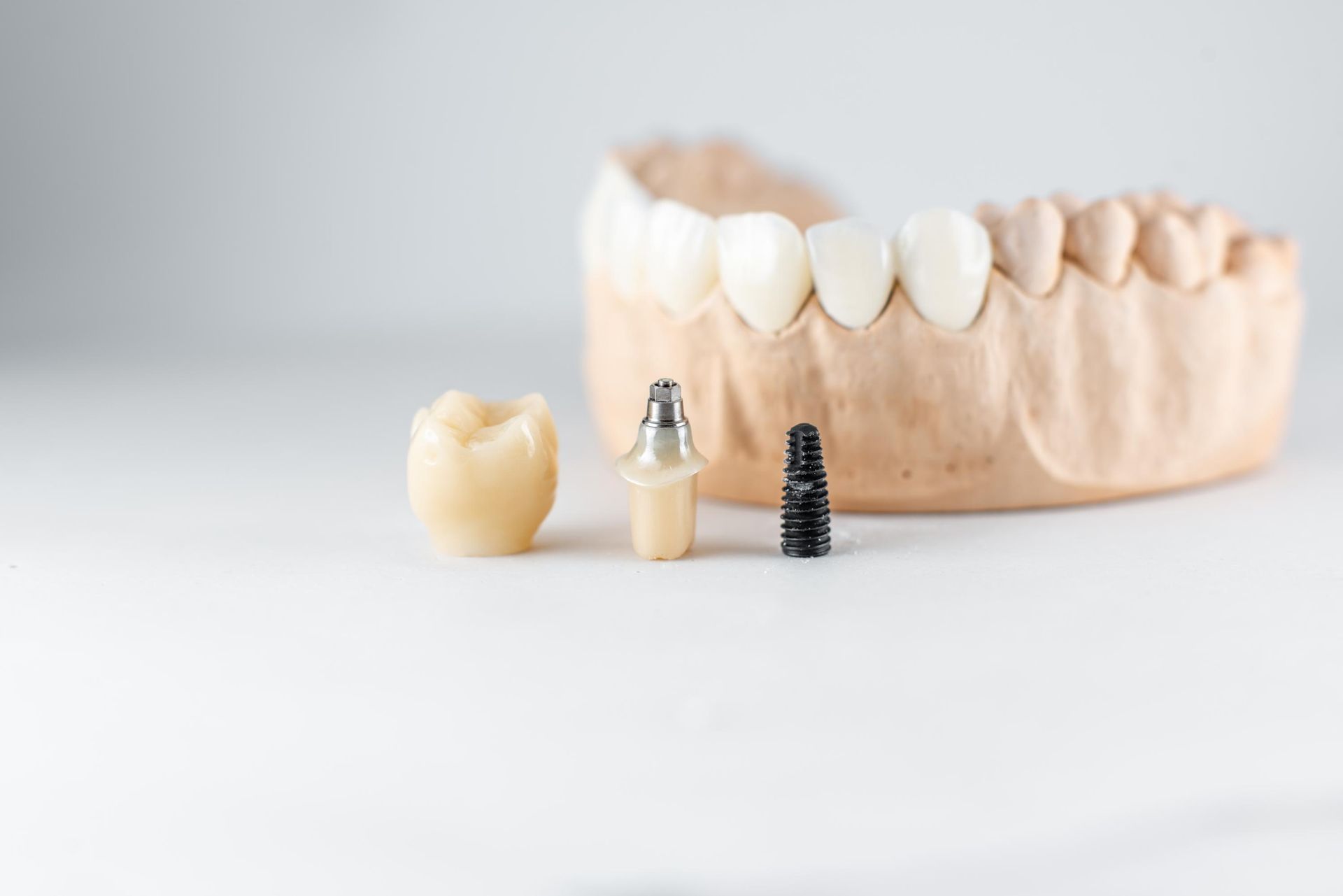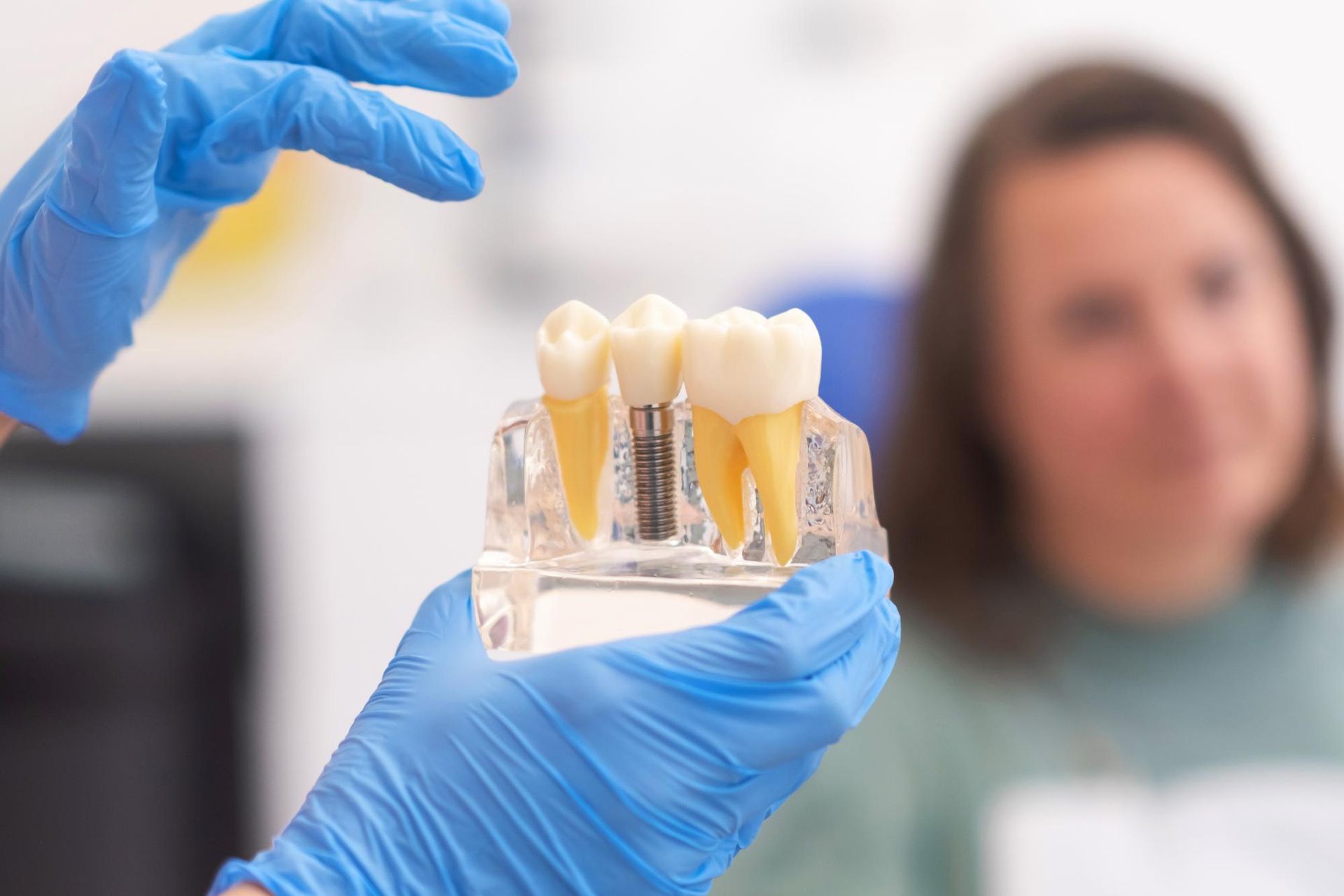Contact Information
Frontdesk@innatedentalsolutions.com
4708 W Plano Pkwy, Plano, TX 75093, United States of America
128 N Highway 77, Waxahachie, TX 75165
4708 W Plano Pkwy, STE 200, Plano, TX 75093
(972) 519-0990
Top Signs Your Tooth Implant Might Fail
8 Minute Read
Worried your tooth implant might fail? This article explains why tooth implants can fail, the signs to watch for, and what you can do about it. Discover how to manage and prevent complications related to tooth implant fail.
Key Takeaways
- Continuous pain, implant mobility, and prolonged swelling are critical early signs indicating potential dental implant failure.
- Dental implant failures can stem from biological factors like poor osseointegration and infections, as well as mechanical issues such as loose screws.
- Preventative measures like maintaining good oral hygiene, making healthy lifestyle choices, and regular dental check-ups are essential for the longevity of dental implants.
Early Warning Signs of a Failing Tooth Implant
One of the most telling signs that your dental implant might be in trouble is continuous pain. Unlike the expected discomfort immediately following the implant procedure, persistent pain can signal that something is amiss. Alongside this, mobility of the implant is a clear indication of a problem. A dental implant should be firmly anchored to the jawbone, so if you notice it becoming loose or shifting, it’s a red flag that needs immediate attention.
Another critical symptom to watch for is prolonged swelling of the gums. While some swelling is normal post-surgery, it should subside within a few days. Continuous or reoccurring swelling could indicate an infection. Additionally, allergic reactions to the titanium alloy used in implants, though rare, can signify the body’s rejection of the implant. Early detection of these signs is crucial for seeking timely professional help and potentially saving the implant.
It’s important to remember that these early warning signs are not definitive diagnoses but indicators that warrant a visit to your dentist. The sooner these issues are addressed, the higher the chances of successful intervention.
Regular check-ups and being attentive to changes in your oral health can make a significant difference in the longevity of your dental implants.
Common Causes of Dental Implant Failures
Dental implant failures can arise from a variety of causes, each affecting the implant’s stability and integration. These causes can be broadly categorized into biological and mechanical factors. Biological issues, such as poor osseointegration and infections around the implant, are significant contributors to early and late implant failures.
On the other hand, mechanical problems like loose screws or fractures can also lead to long-term failure. Understanding these underlying causes is essential for effective treatment and prevention strategies.
Poor Osseointegration
Osseointegration, the process of the dental implant fusing with the jawbone, is critical for the stability and success of the implant. When this process is disrupted, it can lead to early dental implant failure. Factors such as poor oral hygiene and insufficient bone quality can hinder osseointegration, causing the implant to become unstable and ultimately fail. This early failure is often characterized by a lack of bone growth around the implant, preventing it from securely anchoring in the jaw.
In some cases, a bone grafting procedure might be necessary to provide a stable foundation for the implant. However, even with bone grafting, there is still a risk of early failure if the bone does not integrate properly with the implant.
Good oral hygiene and healthy bone density support the osseointegration process and help prevent implant failure.
Infection Around the Implant
Infections near the implant are a major concern. Peri-implantitis is one of the leading causes of dental implant failure. Peri-implantitis is a type of gum disease that causes chronic inflammation and infection of the gums around the implant. If left untreated, this condition can lead to significant bone loss and the eventual loosening of the implant.
The inflammatory response caused by peri-implantitis results in the rapid degradation of bone around the implant, further complicating the issue. Bacterial infections are a significant cause of peri-implantitis, and maintaining good oral hygiene is essential to prevent these infections. Loose or broken screws can also contribute to the instability of the implant, making it more susceptible to infection and failure.
Regular dental check-ups and proper oral hygiene practices are essential to mitigate the risk of infection. Using antibacterial mouthwash and ensuring thorough cleaning around the implant site can help reduce the risk of peri-implantitis and other infections. Early detection and treatment of any signs of infection are crucial to preserving the health and stability of the implant.
Mechanical Issues
Mechanical issues, such as loose screws or fractures, can lead to long-term failure of dental implants. These problems can arise from improper implant placement, excessive force on the implant, or wear and tear over time. Ensuring that the implant is correctly placed and maintained can help prevent these mechanical failures.
Regular follow-ups with your dentist are essential to monitor the condition of the implant and address any mechanical issues promptly.
Risk Factors Contributing to Implant Failure
Several risk factors can contribute to dental implant failure, including patient age, smoking habits, and systemic diseases. These factors can negatively affect the success of dental implants by compromising the healing process and the stability of the implant.
Understanding these risk factors and addressing them can significantly improve the chances of a successful dental implant.
Medical Conditions
Medical conditions such as uncontrolled diabetes can lead to higher short-term failure rates of dental implants. Diabetes affects the body’s ability to heal, making it more challenging for the implant to integrate with the jawbone. Patients undergoing cancer treatment also face significant challenges that can impact implant success. Cancer treatments, such as chemotherapy and radiation therapy, can weaken the immune system and affect bone density, increasing the risk of implant failure.
Patients with these medical conditions should work closely with their healthcare providers to manage them effectively. This includes monitoring blood sugar levels for diabetic patients and coordinating with oncologists for those undergoing cancer treatment. Managing these medical conditions can improve the chances of a successful dental implant.
Lifestyle Choices
Lifestyle choices, such as smoking, can significantly increase the risk of dental implant failure. Smoking impairs the healing process and increases the likelihood of infections like peri-implantitis. Refraining from tobacco products before and after dental implant surgery can significantly enhance healing and integration. Additionally, bruxism, or teeth grinding, can put excessive pressure on the dental implant, jeopardizing its stability.
Healthy lifestyle choices, like quitting smoking and managing bruxism, can significantly improve the success rate of dental implants. Patients are encouraged to adopt habits that promote overall oral health and support the healing process.
Surgical and Technical Factors
A high-quality surgical technique is vital for the long-term success of dental implants. Issues such as loose screws or peri-implant disease can arise from poor surgical technique and inadequate planning. The experience of the oral surgeon plays a significant role in achieving favorable outcomes during dental implant procedures. Connection-related problems for dental implants have been reported at varying rates, highlighting the importance of skilled execution and planning.
Patients should ensure they choose an experienced and skilled surgeon to perform their dental implant procedure. This includes researching the surgeon’s credentials, reading patient reviews, and evaluating the quality of the surgical facility. A well-executed implant procedure can significantly reduce the risk of complications and improve the chances of long-term success.
Treatment Options for Failed Implants
When a dental implant fails, it is typically removed, and the area is treated to prevent further complications related to a failed dental implant. A tailored treatment plan is essential to address the patient’s specific needs and ensure the best possible outcome.
This plan may include non-surgical interventions or surgical solutions, depending on the severity of the failure and the patient’s overall health.
Non-Surgical Interventions
Non-surgical treatments, such as deep cleaning, bone grafting, and antibiotic coverage, can help address minor issues with failing implants. Early intervention is crucial for saving dental implants that may be failing. These interventions can effectively manage complications and extend the life of the dental implant.
For instance, deep cleaning can remove bacterial buildup around the implant, while bone grafting can provide additional support to the implant site. Antibiotic coverage can help manage infections and promote healing. These non-surgical treatments are often the first line of defense against dental implant failure.
Surgical Solutions
In cases where non-surgical interventions are insufficient, surgical solutions may be necessary. If an implant fails, it can be removed under local anesthesia. The site must then be cleaned and allowed to heal before a new implant can be placed. Bone grafting may be employed if there is significant tissue loss around the failing implant.
The decision to pursue surgical solutions depends on factors such as the status of the patient’s oral health and the cause of the implant failure. Patients should work closely with their oral surgeons to develop a treatment plan that addresses these factors and ensures the best possible outcome.
Preventative Measures to Avoid Implant Failures
Preventative measures for dental implants include maintaining good oral hygiene, making healthy lifestyle choices, and scheduling regular dental follow-ups. These measures are essential for preventing complications and ensuring the long-term success of dental implants.
Maintaining Good Oral Hygiene
Good oral hygiene is crucial to prevent complications such as infection and implant failure after dental implant surgery.
Patients should:
- Brush twice a day
- Use fluoridated toothpaste
- Floss daily
- Rinse after meals to maintain good oral hygiene
Using a soft-bristled toothbrush and non-abrasive toothpaste can help protect dental implants during cleaning. Regular use of antibacterial mouthwash can reduce bacterial buildup around dental implants.
In addition to maintaining oral hygiene, patients should avoid hard, crunchy, or sticky foods post-surgery to prevent stress on new implants. A diet low in these types of foods can help ensure the implant heals properly and remains stable.
Healthy Lifestyle Choices
Making healthy lifestyle choices can significantly impact the success of dental implants. Patients are advised to eat soft foods for the first few weeks after receiving a dental implant. Avoiding hard foods after implant placement can prevent damage and ensure proper healing. A balanced diet is essential to support the health of dental implants and overall recovery.
In addition to dietary choices, avoiding tobacco products and managing conditions like bruxism can also improve the success rate of dental implants. Adopting a healthy lifestyle promotes overall oral health and supports the healing process.
Regular Follow-Ups with Your Dentist
Regular dental check-ups are essential to monitor the health and stability of dental implants. Routine dental check-ups help assess implant stability and overall oral health. During these visits, your dentist can identify potential issues with implants before they escalate into serious problems.
Professional cleanings during follow-up appointments maintain the health of the implant site and surrounding tissues. These regular check-ups are crucial for early detection and intervention, ensuring the long-term success of dental implants.
The Role of Bone Grafts in Implant Success
Bone grafts play a vital role in the success of dental implants by providing a stable foundation for the implant. Autogenous bone grafts, which utilize the patient’s own bone, carry the least risk of rejection and infection. There are four main types of bone grafts used in dental procedures: autogenous, alloplastic, xenograft, and allograft, each varying in effectiveness and risk of infection.
Recovery from a dental bone graft typically takes about a week, but full healing can require three to twelve months depending on the graft size. Common post-operative side effects include tenderness and swelling, which usually resolve within a couple of weeks. Post-surgery care, including rest, medication adherence, and good oral hygiene, is crucial for the healing of the grafted area.
The bone graft must heal before placing a new implant. Bone grafts can last indefinitely if utilized timely; however, they may shrink or lose density if not followed by an implant within six to twelve months. Maintaining a balanced diet rich in vitamins and minerals supports healing after implant surgery.
How to Choose a Skilled Oral Surgeon
Selecting a skilled oral surgeon is crucial for the success of your dental implants. Start by researching potential surgeons thoroughly, including reviewing their services and credentials. Recommendations from family, friends, and healthcare professionals can provide valuable insights into the quality of oral surgeons. Choosing a board-certified surgeon ensures they meet established educational standards and have the necessary expertise for complex dental procedures.
Reading patient reviews can also help gauge the surgeon’s skill and overall satisfaction among previous patients. Experience in the specific procedure you require is essential for ensuring a successful outcome.
Effective communication during consultations is vital; the surgeon should address your concerns and explain procedures clearly. Additionally, consider the quality of the surgical facility and its equipment, as these factors can significantly affect your surgical experience. Evaluating the customer service of the dental office, including staff interactions, contributes to a positive overall experience.
Summary
Understanding the signs, causes, risk factors, and treatment options for dental implant failures is key to ensuring the longevity and success of your dental implants. Early detection of issues such as pain, mobility, and infections, along with addressing risk factors like medical conditions and lifestyle choices, can significantly improve outcomes. Both non-surgical and surgical treatment options are available to manage failed implants, depending on the severity and specifics of the failure.
Preventative measures, including maintaining good oral hygiene, making healthy lifestyle choices, and scheduling regular follow-ups with your dentist, are essential for avoiding implant failures. Bone grafts play a critical role in providing a stable foundation for implants, and choosing a skilled oral surgeon can greatly influence the success of the procedure. By staying informed and proactive, you can ensure your dental implants remain a durable and effective solution for tooth replacement.
Frequently Asked Questions
-
What are the early warning signs of a failing dental implant?
Early warning signs of a failing dental implant include continuous pain, implant mobility, prolonged gum swelling, and possible allergic reactions to the titanium alloy. If you experience any of these symptoms, it is crucial to seek professional assistance immediately.
-
What are the common causes of dental implant failures?
Dental implant failures are often attributed to poor osseointegration, infections such as peri-implantitis, and mechanical issues like loose screws or fractures. Addressing these factors is crucial for ensuring the long-term success of implants.
-
How can medical conditions affect dental implant success?
Medical conditions like uncontrolled diabetes and ongoing cancer treatments can significantly hinder the success of dental implants by impairing the healing process and reducing bone density. Effective management of these conditions is essential for optimal implant outcomes.
-
What non-surgical interventions are available for a failing dental implant?
Non-surgical interventions for a failing dental implant include deep cleaning, bone grafting, and antibiotic therapy. Addressing these issues promptly is essential to prolong the implant's lifespan and improve outcomes.
-
How can I choose a skilled oral surgeon for my dental implant procedure?
To choose a skilled oral surgeon for your dental implant procedure, it is essential to research their credentials, ensure they are board-certified, and read patient reviews. Additionally, assess their communication skills during consultations and the quality of the surgical facility.
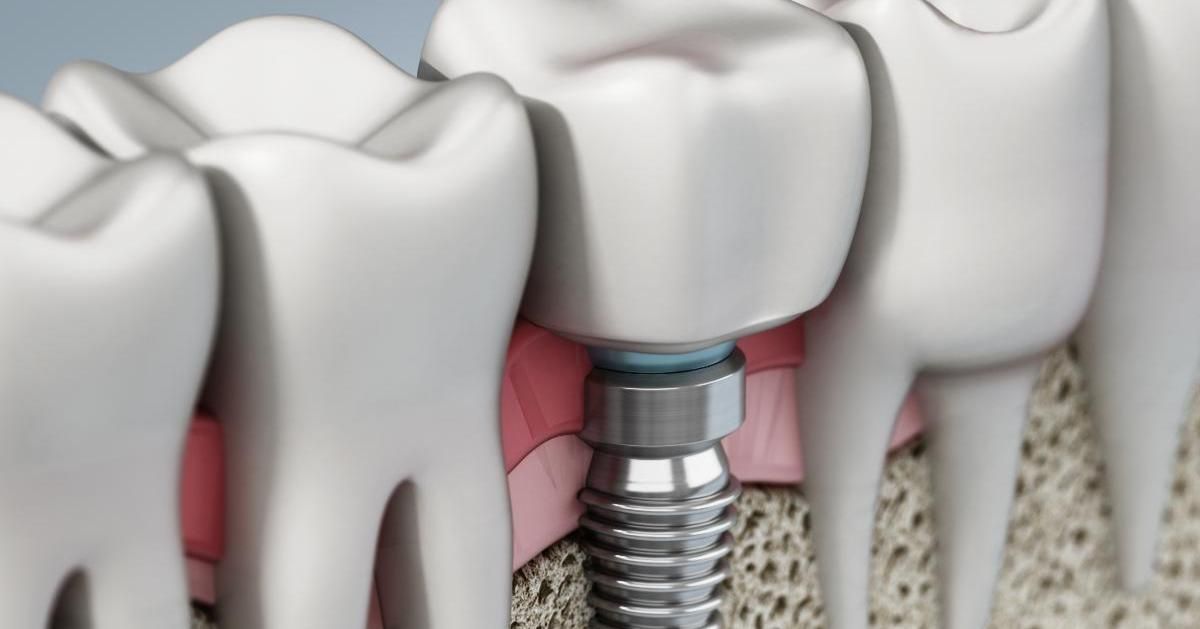
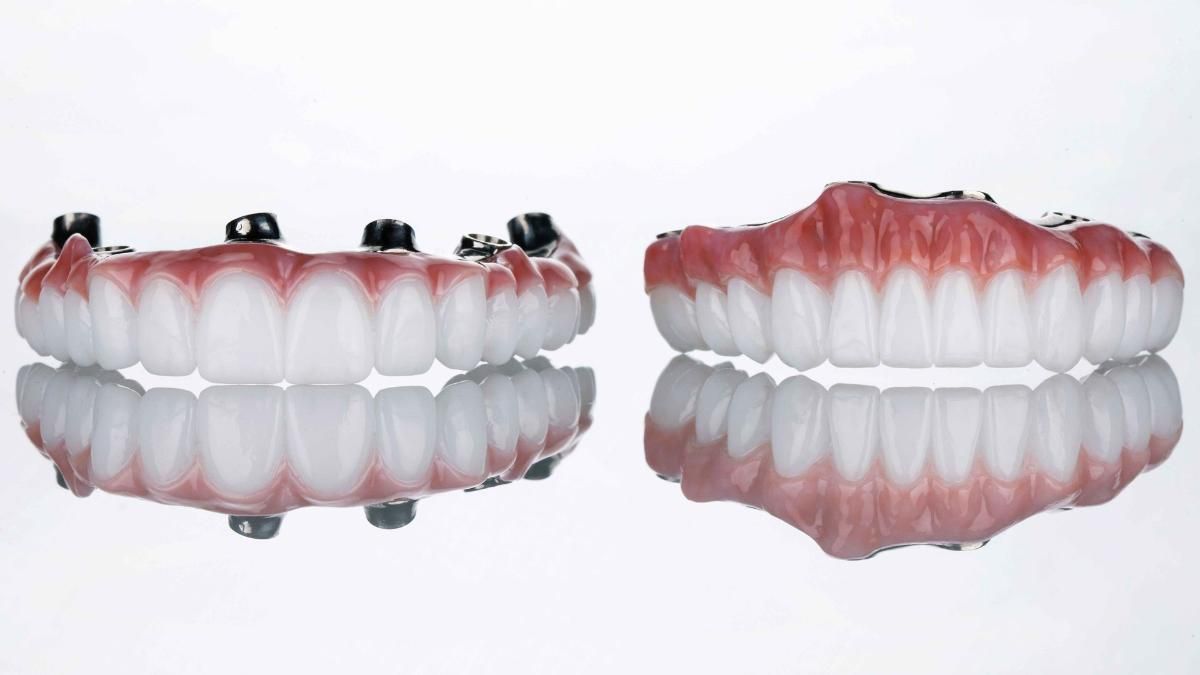

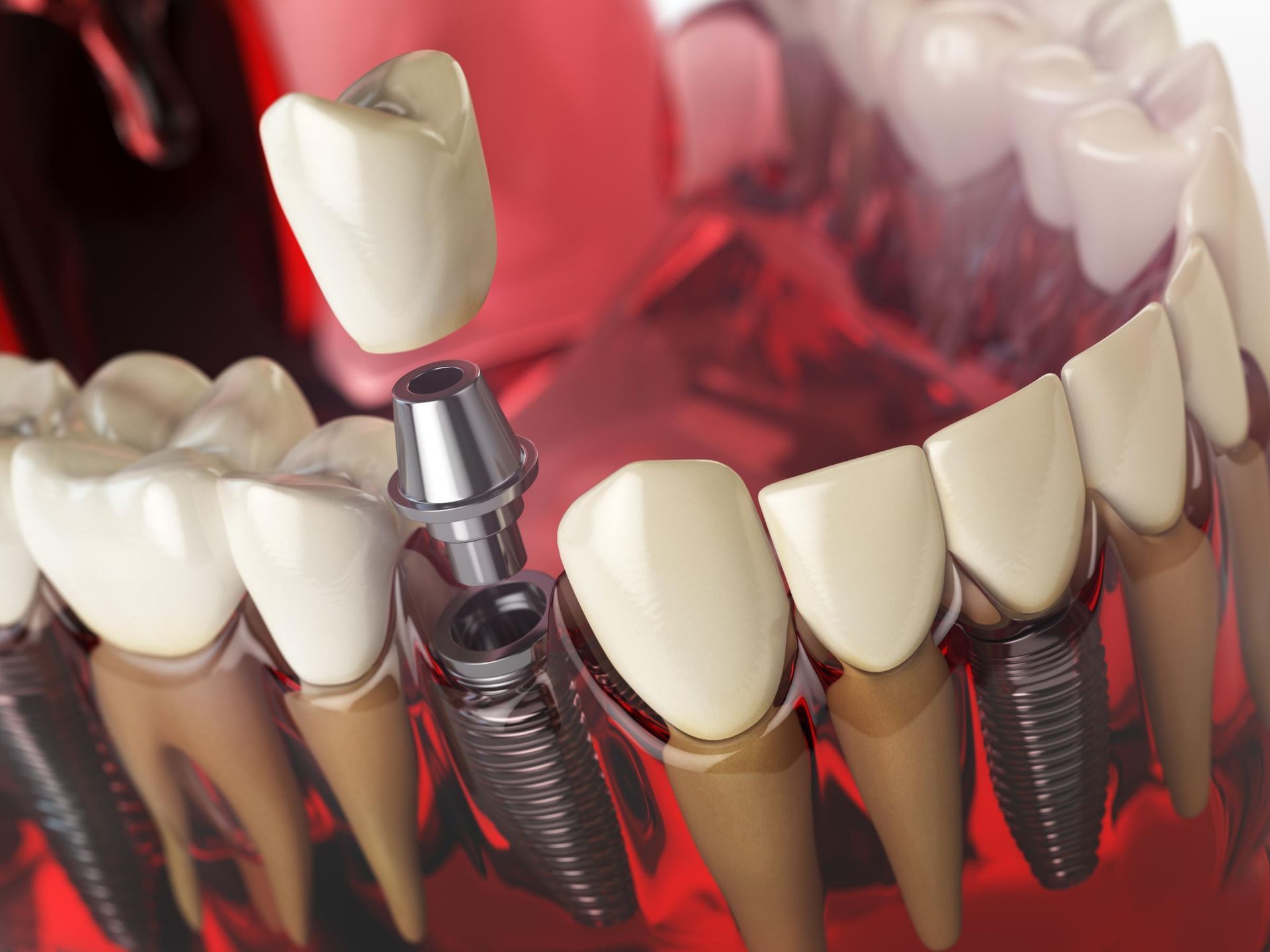



CONTACT US
Your Deserve a Beautiful Smile
Let Us Make It Happen
For more information about our services, or to get a free quote, complete the form below or give us a call at (972) 519-0990.

Contact Information
Get Your Free Dental
Implant Consult Package
Get your First Consultation, Panoramic X-Rays, & Treatment Plan with our head dentist for FREE to see if you qualify for implant treatment. Everything you need to get started transforming your smile. $397 Value. Please note, dental implants are NOT covered by Medicare or Medicaid.
Reserve Your Spot Today - Limited Availability Every Month
Our Services
Quick Links
Our Locations
Plano Location
4708 W Plano Pkwy, STE 200, Plano, TX 75093
Waxahachie Location
Innate Dental Solutions, 128 N Highway 77, Waxahachie, TX 75165
All Rights Reserved | Innate Dental Solutions

